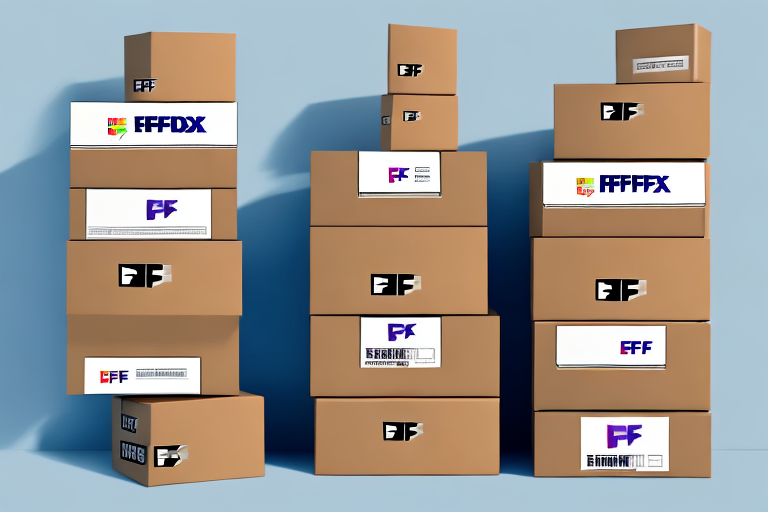Comparing FedEx and UPS Costs: Which Shipping Service is Cheaper?
Shipping costs are a critical consideration for businesses that regularly send out packages. With numerous shipping service providers available, determining the most cost-effective option can be challenging. This article provides an in-depth comparison of the two largest shipping companies, FedEx and UPS, to identify which one offers more affordable solutions for your business needs.
The Importance of Comparing Shipping Costs
For businesses that frequently ship products, shipping costs can significantly impact overall expenses and profitability. By comparing different shipping service providers, businesses can make informed decisions that minimize costs and enhance efficiency. It's essential to evaluate rates and fees for both domestic and international shipping, as well as any additional charges that might apply.
Delivery time is another crucial factor. Some services may offer lower rates but longer delivery times, which can affect customer satisfaction and sales. Additionally, the reliability and reputation of the shipping provider are vital; delays or lost packages can lead to extra costs and harm a business's reputation. By meticulously comparing shipping costs and services, businesses can optimize their shipping strategies to support their bottom line and maintain high customer satisfaction.
Key Factors in Choosing a Shipping Service Provider
Reliability and Track Record
Assessing a provider's reliability is paramount. Look for companies with a consistent history of on-time deliveries and minimal package losses. Both FedEx and UPS have established reputations, but specific service levels may vary based on your location and shipping volume.
Customer Service and Support
Responsive and effective customer service can resolve issues quickly, reducing potential disruptions. Evaluate the support options available, such as phone support, online chat, and comprehensive self-service resources.
Delivery Network and Services
Consider the breadth of the provider’s delivery network. A larger network can offer more delivery options and faster transit times. Additionally, assess the range of services offered, including specialized shipping options like temperature-controlled or hazardous material shipping.
Cost Considerations
Beyond base shipping rates, scrutinize additional fees such as fuel surcharges, residential delivery fees, and handling charges for oversized or heavy packages. Understanding the full cost structure is essential for accurate budgeting.
FedEx vs. UPS: Pricing and Fees
FedEx Pricing Structure
FedEx offers a variety of shipping services with pricing based on package type, shipping speed, and destination. Additional fees may apply for services like declared value, delivery confirmation, and signature requirements. FedEx also provides discounts for high-volume shippers and account holders, which can significantly reduce costs.
Visit FedEx Pricing Details for more information.
UPS Pricing Structure
UPS provides multiple shipping options, including ground, air, and international services. Pricing varies based on package weight, size, and delivery location. Similar to FedEx, UPS charges extra fees for services such as delivery confirmation and signature requirements. UPS offers discounts for frequent shippers and those with large shipping volumes, helping businesses save on overall costs.
Learn more about UPS pricing at UPS Pricing Details.
Comparing FedEx and UPS Rates for Domestic and International Shipping
Domestic Shipping Rates
For domestic shipments within the United States, both FedEx and UPS offer a range of services from ground to expedited delivery. Based on recent surveys, UPS tends to have slightly more competitive rates for domestic shipping, especially for standard ground services. However, FedEx may offer better rates for certain specialized services or faster delivery options.
International Shipping Rates
When it comes to international shipping, FedEx generally provides more competitive rates compared to UPS. FedEx's extensive global network allows for efficient and cost-effective international deliveries. Additionally, FedEx offers specialized services like temperature-controlled shipping, which can be advantageous for perishable goods.
For detailed international shipping rates, refer to FedEx International Rates and UPS International Rates.
Additional Fees and Cost-Saving Strategies
Common Additional Fees
- Fuel Surcharges: Both FedEx and UPS impose fuel surcharges that fluctuate with fuel prices.
- Residential Delivery Fees: Delivering to residential addresses often incurs extra costs.
- Delivery Area Surcharges: Deliveries to remote or hard-to-reach locations may incur additional fees.
Strategies to Reduce Shipping Costs
- Negotiate Rates: Businesses that ship frequently can negotiate better rates with FedEx and UPS by presenting their shipping volumes and needs.
- Utilize Flat-Rate Shipping: Flat-rate options allow shipping items of various sizes and weights for a fixed price, which can be more economical.
- Leverage Bulk Discounts and Promotions: Take advantage of bulk shipping discounts and seasonal promotions offered by both providers.
Customer Reviews and Overall Value
Customer feedback is invaluable when assessing shipping service providers. Reviews highlight factors such as delivery speed, package handling, customer service responsiveness, and overall satisfaction. Both FedEx and UPS receive positive reviews, but specific strengths may vary:
- FedEx: Known for reliable handling of high-value and fragile items, as well as a robust international network.
- UPS: Praised for competitive domestic rates and a wide range of shipping options.
For more detailed customer insights, visit platforms like Customer Reviews on ShipScience.
Conclusion: Which Shipping Service Provider is Right for Your Business?
Selecting the most cost-effective shipping service provider requires a comprehensive analysis of your business’s specific needs, shipping volume, and budget constraints. Both FedEx and UPS offer robust services with distinct advantages:
- Choose FedEx if: You require specialized international shipping options and have a significant volume of high-value or fragile items.
- Choose UPS if: You prioritize competitive domestic rates and need a wide range of shipping options for various package sizes and types.
By carefully evaluating the rates, fees, service reliability, and customer feedback for both providers, your business can make an informed decision that enhances shipping efficiency and optimizes costs. For more detailed comparisons and expert shipping advice, visit ShipScience.




















